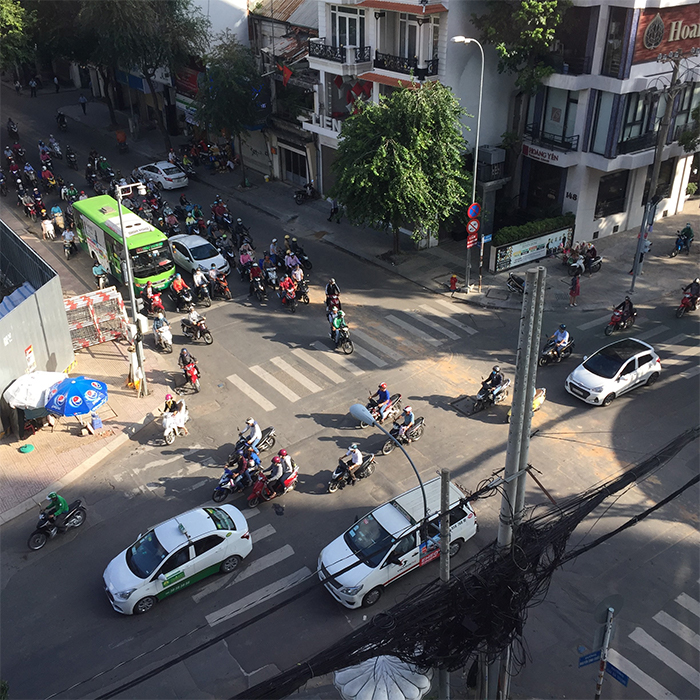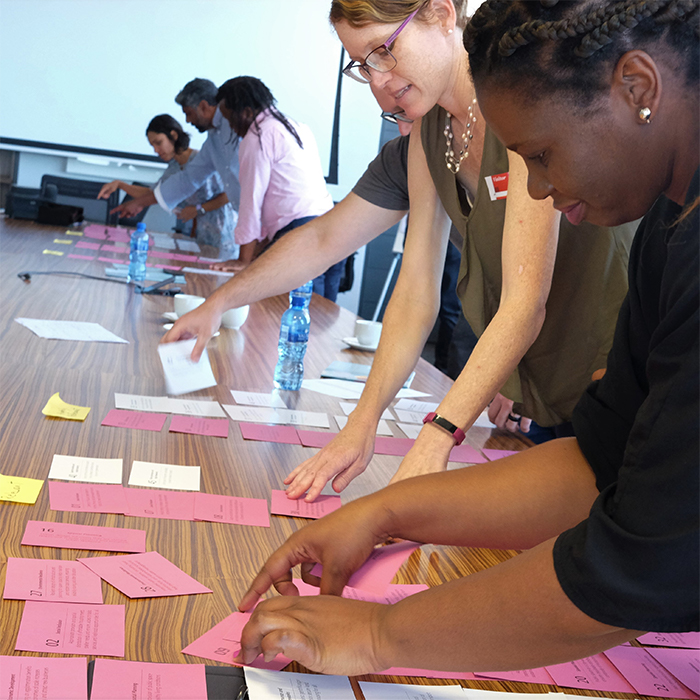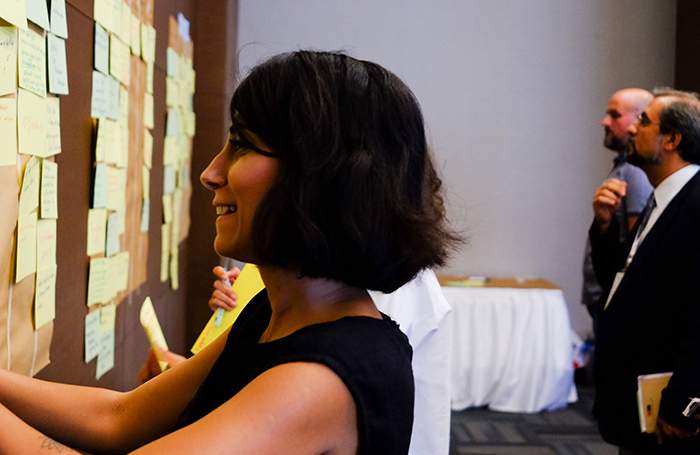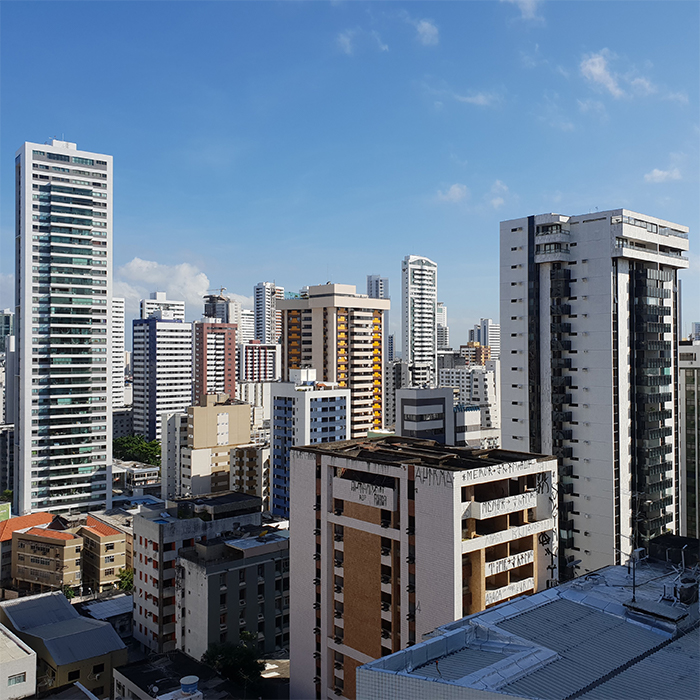UN-Habitat’s Urban Lab has been the strategic and capacity building partner to the UK Prosperity Fund's Global Future Cities Programme since 2018, closely collaborating with the UK Built Environment Advisory Group (UKBEAG) and its associated professional organisations. The programme is now halfway to achieving its objective, and the emphasis continues to be on establishing collaborative approaches to achieve sustainable urbanisation.
The world is rapidly urbanising, with over 55% of the global population now living in urban areas, expected to increase to almost 70% by 2050. Furthermore, approximately 70% of global energy consumption and greenhouse gas emissions are generated in cities, and yet, cities also generate some 70% of GDP and are engines for economic growth. Properly managed urbanisation brings a lot of opportunities, especially in terms of building economies and improving living conditions in urban areas. However, many cities and towns still face challenges of inadequate infrastructure provision, the climate emergency and its impact on the environment, a lack of affordable and adequate housing, socio-economic divides, poverty, and more. Sprawling urban areas, in many cases created by singularly functional developments, limit access to job opportunities and social and commercial services while also being disconnected. During the last year, the COVID-19 pandemic has posed additional strains on cities and their inhabitants, especially economically and socially.

This is where the Prosperity Fund and the Global Future Cities Programme plays an instrumental role; by contributing to building prosperity and economic growth, alleviating poverty, and encouraging sustainable urbanisation. Through the development of 30 transformative projects in 19 cities across the 10 countries that are part of the programme, significant potential can be harnessed to ensure a better-built environment for all. Through an integrated and interdisciplinary approach to developing solutions on urban planning, mobility, transport, and urban resilience, the ambition is for the programme to have a real long-term impact.
UN-Habitat conceptualised the idea of urban prosperity as being composed of a number of drivers: productivity, infrastructure, quality of life, equity and inclusion, environmental sustainability, and urban governance and legislation, among others. The identified 30 transformative projects address these issues, inform policy change, and encourage cities to move away from the "business as usual" approach. Each of the 19 cities brings its unique settings, their specific cultural and socio-economic backgrounds, urban structure and historical development patterns. While the characteristics of the cities are distinctive, the systemic barriers to transformation are very common. Addressing these barriers is essential to safeguard sustainable urbanisation, and part of the approach is to engage partners and local stakeholders in exploring opportunities to arrive at solutions that build upon local context and the specific needs in each of the cities. Urban planning and design, more broadly speaking, is a key instrument in this regard.
UN-Habitat’s Urban Lab engaged in the programme’s strategic development phase (2018-2019) to support further definition and validation of the identified projects in selected cities, but also to identify, map, and engage key stakeholders and actors related to the project. By undertaking urban profiling (through City Context Reports) and by assessing the technical viability of the projects, a solid base was provided to develop Terms of References for each of the 30 projects. In turn, this provided the basis for the UK Foreign, Commonwealth & Development Office (FCDO) to engage private sector partners who, during the current implementation phase (2019-2022), are developing the projects further in close collaboration with the cities and other programme partners.

In this phase, the Urban Lab of UN-Habitat provides strategic and policy advice coupled with technical recommendations, to help increase the quality of projects, as well as their contribution to the Sustainable Development Goals (SDGs) and the New Urban Agenda. An SDG Project Assessment Tool was developed for this particular purpose, to act as an innovative framework and mechanism to bring all partners to the table. Through the tool, partners can not only jointly assess progress made by the projects, but also explore how the SDGs can be transferred and applied in a local context. A critical factor is to ensure that the projects will have the intended impact from a longer-term perspective, beyond the Global Future Cities Programme, which runs until early 2022. It should be noted, the foundations of the future are being prepared now, as the 19 "client" cities take ownership and stewardship of the projects.

UN-Habitat is also curating the resources and learning generated through the programme, coupling local experiences and lessons learned with global knowledge and best practice. This will lead to new understandings captured in the form of publications or other products. To make the programme and its projects known and visible to a wider audience, an online knowledge management platform has been developed to support the dissemination of information, and to act as a repository. It also includes a community forum, engaging programme partners and beyond, in issues related to sustainable urban development.
Raising awareness and building capacity within the cities and among other Programme Partners is fundamental for success. The collaboration between UN-Habitat and UKBEAG in planning, designing, and delivering a programme-level capacity building component will be instrumental to support the project delivery and address identified needs in the 19 cities. Building upon the analysis and training provided in the previous phase, the capacity building component provides an excellent opportunity to not only promote sustainable urbanisation, explore actions to implement the SDGs and New Urban Agenda, but also to leverage the expertise within the UK built environment sector.

The Global Future Cities Programme presents opportunities to accelerate action in achieving the 2030 Sustainable Development Agenda, and through collective and interdisciplinary efforts, we can achieve more at a faster rate. The programme provides the space to explore and arrive at relevant and innovative approaches that push boundaries, explore alternative solutions, and ultimately reinforce the path towards sustainable urban cities and towns – socially, economically and environmentally. Professionals in the built environment sector play a key role in addressing challenges and finding new ways of planning, designing, and building our future cities.
Klas Groth and Naomi Hoogervorst, Urban Planners and Managers of the Global Future Cities Programme
The Urban Lab/UN-Habitat, Nairobi, Kenya









